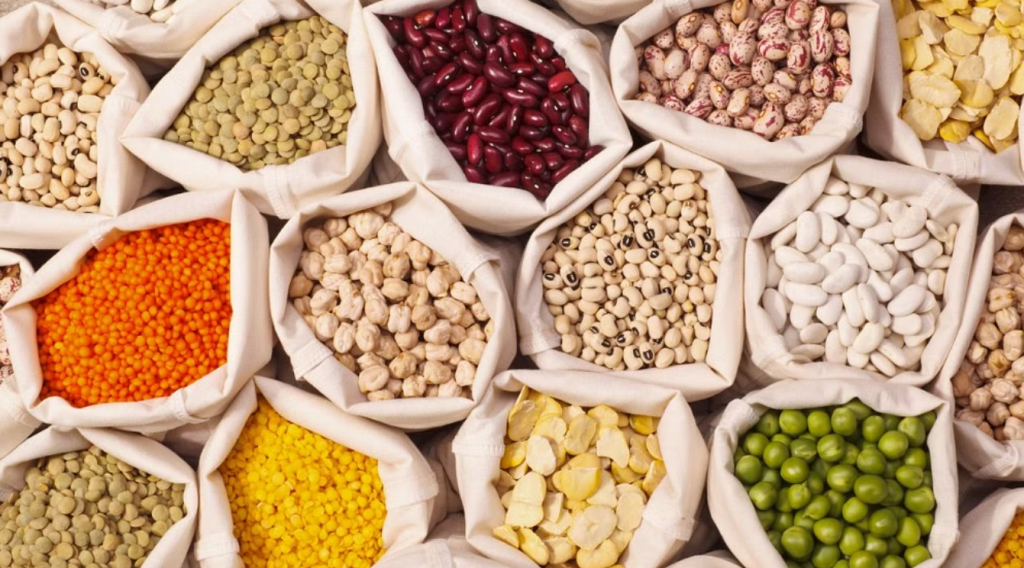Because our bodies require a large number of nutrients, it is rather easy to fail to deliver sufficient amounts of certain nutrients. Fiber is one of those nutrients that, even though it is really important, receives a lot of attention. According to a report that was published on Nutrition 2021 Live Online, fewer than ten percent of persons in the United States are consuming sufficient amounts of fiber to fulfill the recommendations for their diet.
Women should consume 25 grams of fiber per day, while men should consume 38 grams per day, according to the recommendations made by the United States Department of Agriculture for persons who are 50 years old or younger. According to Harvard Health Publishing, when it comes to women over the age of 50, the recommended daily intake is 21 grams, while the recommended daily intake for men is 30 grams. Research conducted by Harvard Health Publishing indicates that the typical adult in the United States consumes only 10–15 grams of total fiber daily.
What function does fiber serve in the process of preserving one’s health?
According to Petrucci, our comprehension of how the health of our guts influences other aspects of our bodies, such as the immune system, the skin, and the functioning of the brain, is fast developing. It is important to note that fiber is considered to be the “favorite food” of the digestive tract. If you do not consume an adequate amount of fiber, the bugs or bacteria that line your entire gastrointestinal system will not receive the appropriate nourishment that they require. Consequently, because they do not have access to an adequate amount of food, they start chewing on the lining of their digestive tract.
A “leaky gut” is the term that Petrucci uses to describe the effect of this procedure. A leaky gut is essentially defined as large holes in the lining of the digestive tract that enable toxins and food that have only been partially digested to enter the body and cause inflammation. This definition comes from Harvard Health Publishing.
According to Petrucci, “Really, all we can do is maintain control,” he says. “Fiber is a simple material that can help us achieve that.” Additionally, she asserts that women can reap the benefits of maintaining healthy hormone levels by consuming a diet that is high in fiber to achieve this. Women who had a diet that was high in fiber had an eight percent decreased chance of developing breast cancer compared to women who consumed a diet that was low in fiber. This may be because fiber can reduce estrogen levels and blood sugar levels.
Find out where you can get the fiber that you need daily.
Food is the place to begin, according to Petrucci, if you are looking for a technique to improve the amount of fiber you consume daily. “Feed is always better than supplements because it provides a whole host of other nutrients in addition to fiber,” according to her.
Here are some examples of foods that are high in fiber, including but not limited to:
- Avocados
- Green leafy vegetables
- Almonds in their raw form
- Vegetables such as cabbage,
broccoli, bok choy, and Brussels sprouts,
addition to various types of crunchy greens
Berries, apples, and seeds (including chia, flax, and sunflower) are all included in this compilation.

On the other hand, Petrucci acknowledges that it may be challenging to monitor the quantity of fiber that you take in for a variety of reasons, such as a lack of time.
While she is considering ways to assist other people, she continues by saying, “I try to meet people where they are.” As a result, I would suggest taking a supplement within the suggested time frame.
When it comes to taking a supplement, Petrucci recommends that you opt for one that possesses all three of the following characteristics:
- A supplement containing fish oil
- A superfood that is rich in omega-3
Insoluble and soluble fibers are included in this category.
According to Petrucci, the majority of people should consume 10 grams of fiber supplements daily, which is equivalent to the recommended daily allowance (RDA). In addition, she mentions that some individuals have reported experiencing constipation and bloating after utilizing fiber supplements that contain psyllium; therefore, it is probably best to avoid those for the time being until further notice.
To assist the transit of waste items through your colon, Petrucci recommends that you consume foods that are high in fiber daily and that you maintain a healthy level of hydration.
Take a look at the labeled nutrition information. It is necessary to have a fiber of some kind present. It is especially important to steer clear of carbohydrates that are low in fiber if you are consuming foods that are rich in sugar or carbohydrates. This is because these types of carbohydrates will not boost your general health.
Post Source: cnbc.com

























